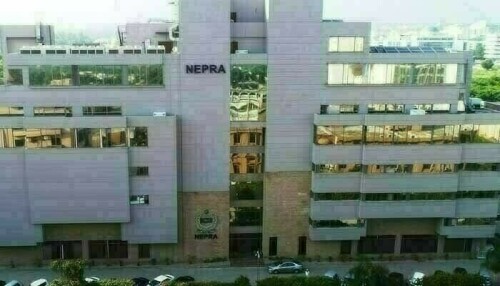Nepra Faces Challenge After Tribunal Ruling on Cold Storage Tariffs
The National Electric Power Regulatory Authority (Nepra) is currently addressing a difficult regulatory and legal situation stemming from a recent verdict by the Nepra Appellate Tribunal concerning the tariff classification applicable to cold storage facilities throughout the country.
The Tribunal has instructed Nepra to ensure prompt resolution of applications submitted by appellants, based on a mutual agreement between the involved parties, while adhering to legal standards and ensuring all relevant stakeholders are afforded an opportunity to present their perspectives.
In its majority decision on December 23, 2024, Nepra asserted that cold storage facilities do not align with the stipulations outlined in consumer-end tariff determinations for the implementation of industrial supply tariffs. Consequently, all Distribution Companies (Discos), including K-Electric, were directed to categorize all cold storages under the commercial tariff category, as previously communicated in the tariff terms and conditions dated July 25, 2022.
The regulatory body further explained that the commercial tariff is applicable to establishments and offices involved in commercial activities. Conversely, the industrial tariff is designated for entities engaged in manufacturing, value addition, or the processing of goods. Nepra clarified that cold storages typically cater to retail chains, food distributors, and restaurants, providing storage for items such as fruits, vegetables, dairy products, and meat without any processing or transformation, focusing solely on maintaining freshness until the point of sale. As such, they do not meet the criteria for industrial classification.
Chairman of Nepra, Waseem Mukhtar, noted that at the time of the decision, the Member (Tariff) was on leave, and with dissenting opinions from Members (Technical) and (Law), he utilized his casting vote as the presiding officer, in accordance with Section 5(4) of the Regulation of Generation, Transmission and Distribution of Electric Power Act, 1997 (XL of 1997), to finalize the ruling.
In his dissenting note, Member (Technical) Rafique Ahmad Shaikh contended that cold storages involved in extensive processing, value addition, or long-term preservation—particularly within the agriculture, food, and pharmaceutical industries—should be classified under the industrial tariff. He suggested a nuanced strategy: cold storages involved in short-term retail distribution without significant value addition could stay under the commercial tariff, while larger, industrial-scale operations should be granted industrial classification. He also cautioned that a uniform commercial classification could place an undue burden on a vital sector of the economy.
Member (Law) Amina concurred that the tariff regulations stipulate that a facility must be engaged in manufacturing, value addition, or processing to be eligible for industrial rates. However, she argued that cold storages do, in fact, perform value-adding activities by utilizing advanced technology to safeguard the physical, chemical, and nutritional qualities of perishable items, akin to processing. She also highlighted that numerous jurisdictions, including those in the United States (California, New York, Texas), India, the Netherlands, and Poland, recognize cold storage facilities as industrial operations due to their considerable energy consumption.
Nepra’s decision was challenged by 108 cold storage operators before the Nepra Appellate Tribunal in a case titled Javed Iqbal Ch s/o Mushtaq Ahmad Prop M/s Ever-Green Cold, etc. vs. Federation of Pakistan, etc. The Tribunal’s decision, which was issued on April 16, 2025, has been sent to Nepra and three Distribution Companies (Discos) for implementation.
The ruling, which was endorsed by Tribunal Chairman Zafar Ullah Khan Khakwani and Member (Electricity) Salman, indicates that the appellants contested Nepra’s December 23, 2024, decision, which rejected their grievances regarding the reclassification of their tariff from industrial to commercial by LESCO.
During the proceedings, the appellants’ legal representative presented a government notification (No.1 (42)/2005-Inv-III of February 6, 2025) from the Ministry of Industries and Production, which designated the warehousing sector, including cold storage, as an “industry”. They asserted that this declaration addressed their primary concern, although they were still seeking reimbursement for excess payments made under the commercial tariff.
Nepra’s legal counsel conceded that, given the notification, the appeal had become moot. Following brief consultations, Nepra’s counsel committed that should the appellants submit formal applications, Nepra would adjudicate them expeditiously and in accordance with legal standards, ensuring all stakeholders are fairly heard.
Consequently, the Tribunal determined the appeal to be infructuous but stressed that Nepra is expected to act promptly on any filed applications, adhering to legal protocols and ensuring stakeholder involvement.
Sources indicate that Nepra is now in a delicate situation, especially given that the Tribunal has attributed specific commitments to its legal representative. While the possibility of appealing the Tribunal’s decision is being weighed, a final determination has not yet been reached.



Comments (0)
No comments yet. Be the first to comment!
Leave a Comment